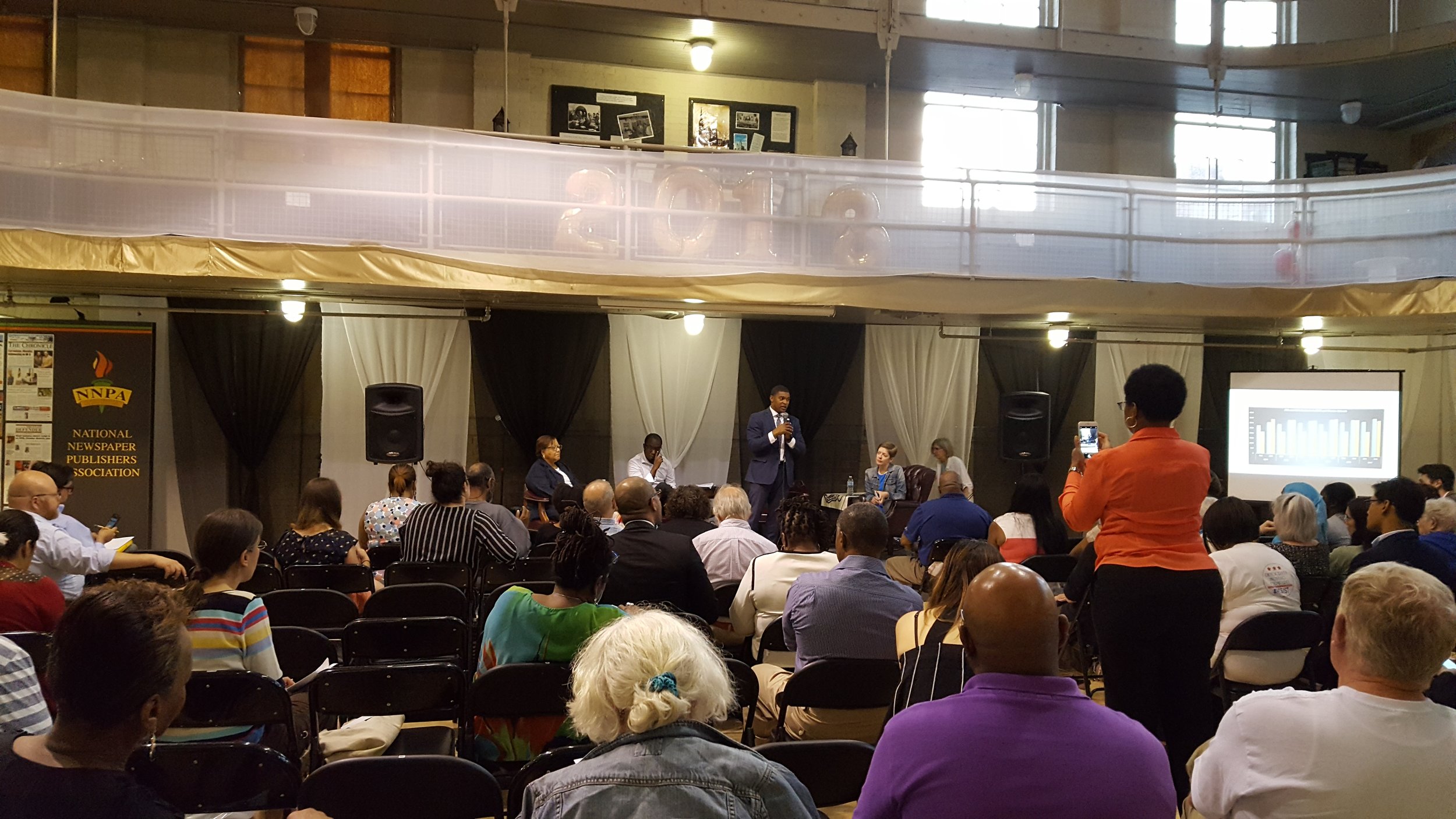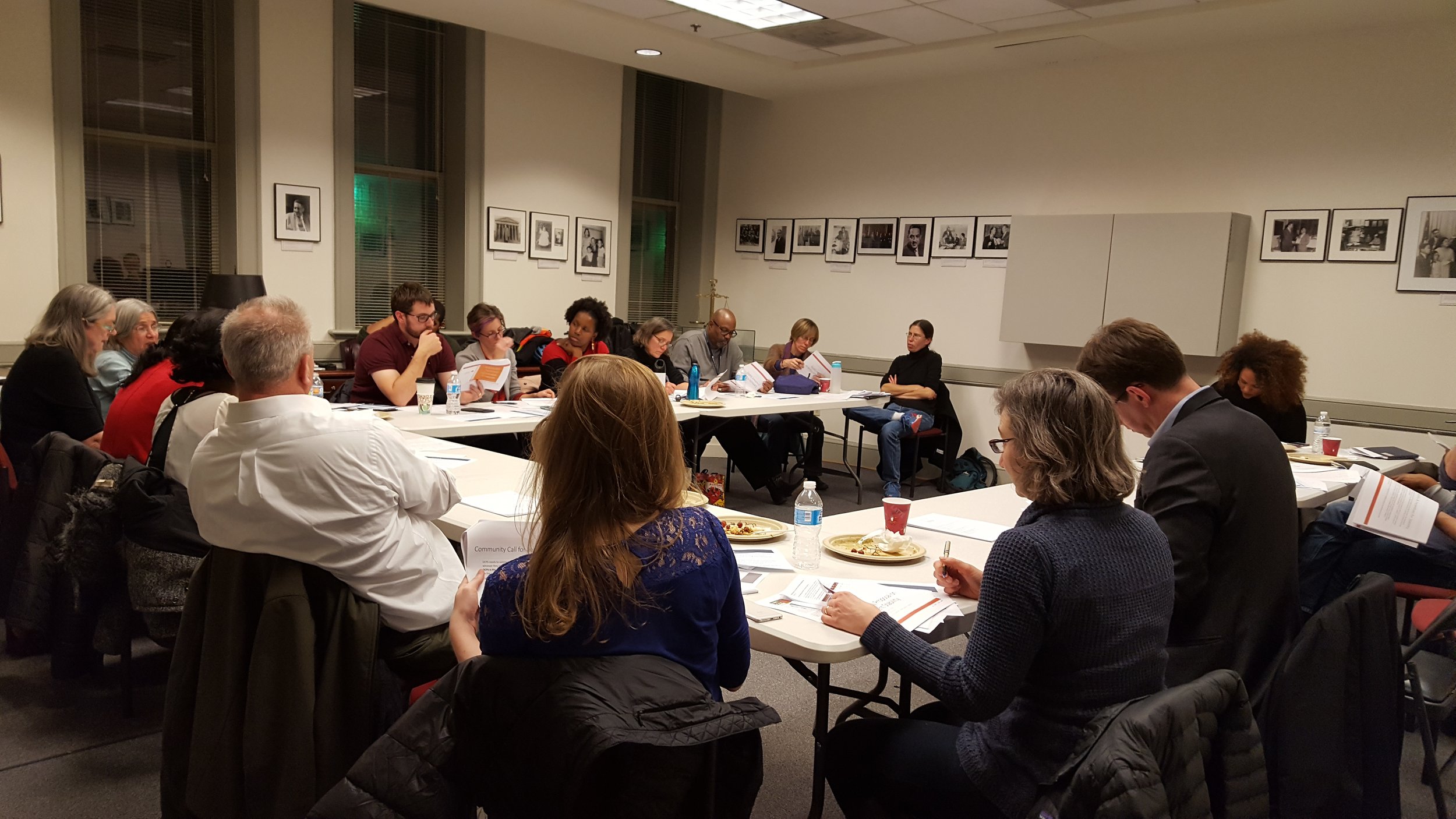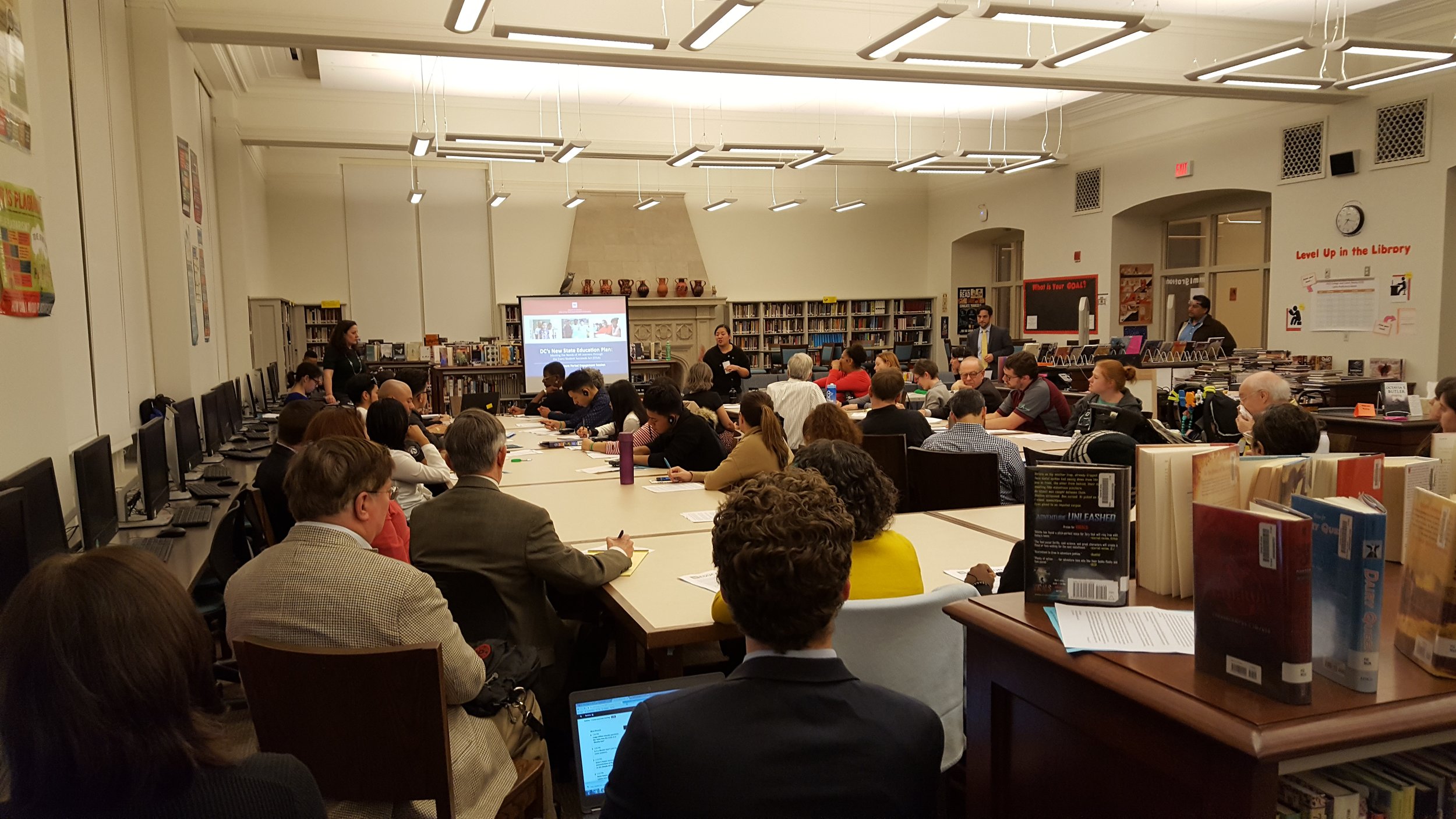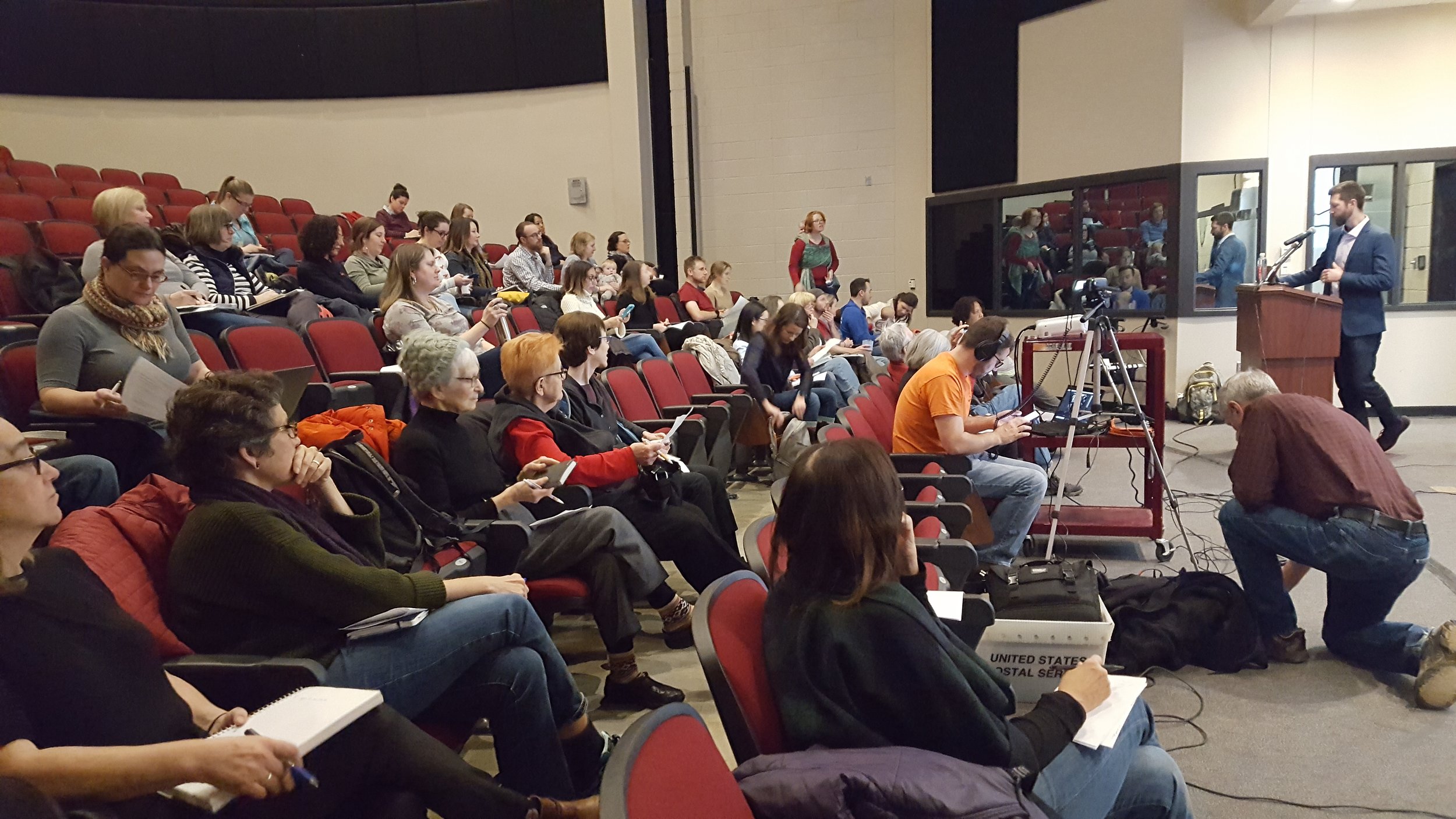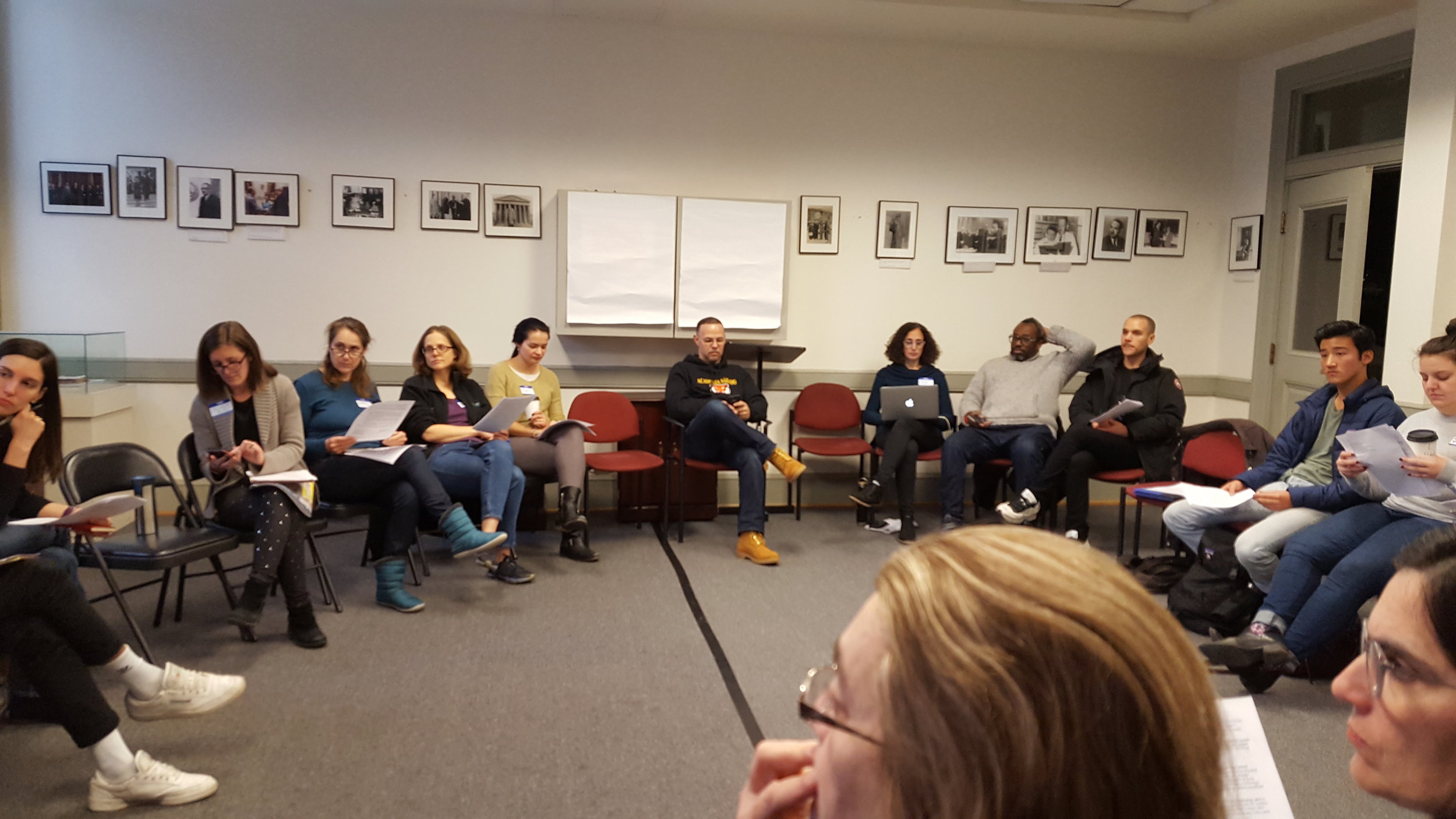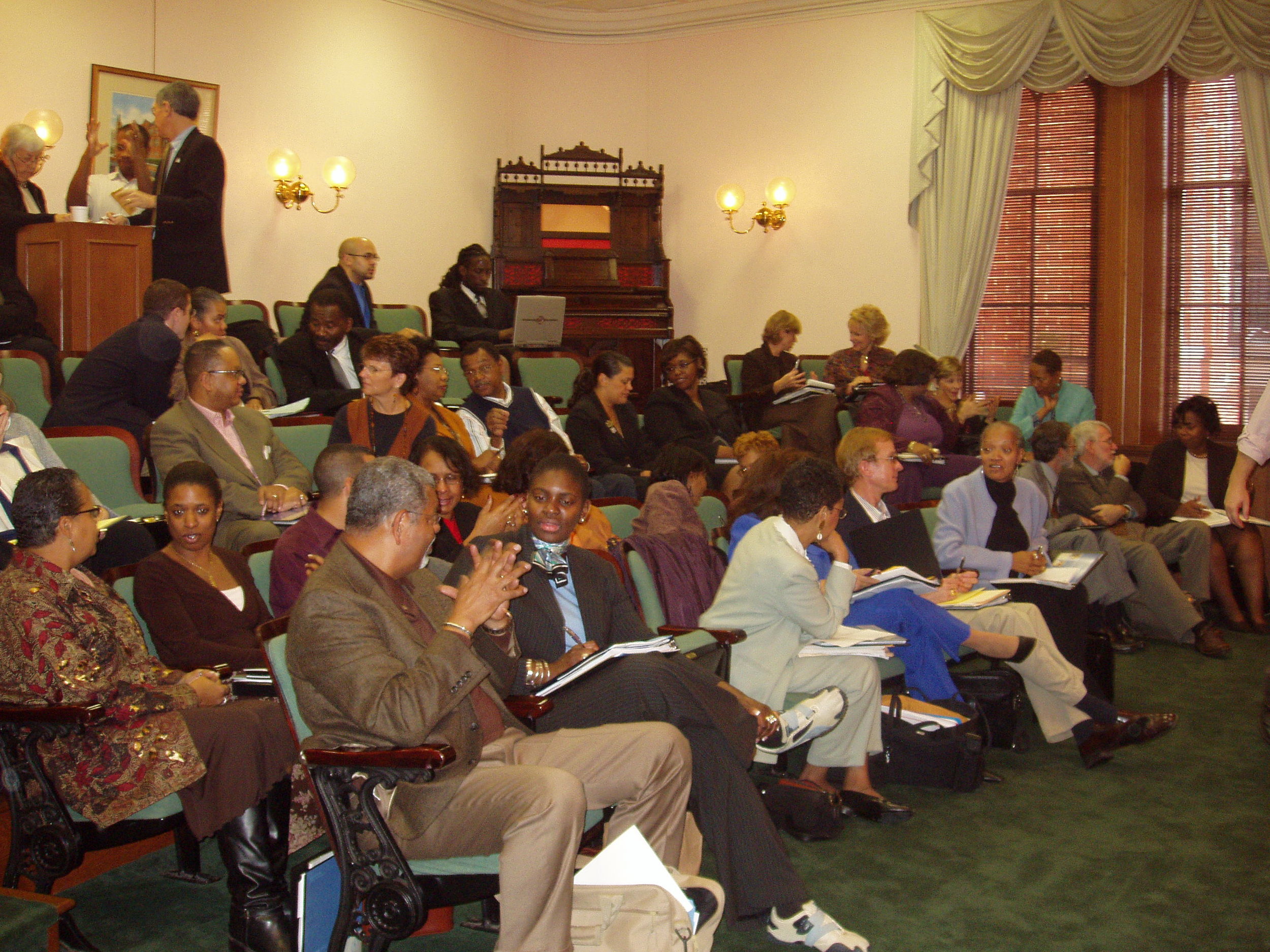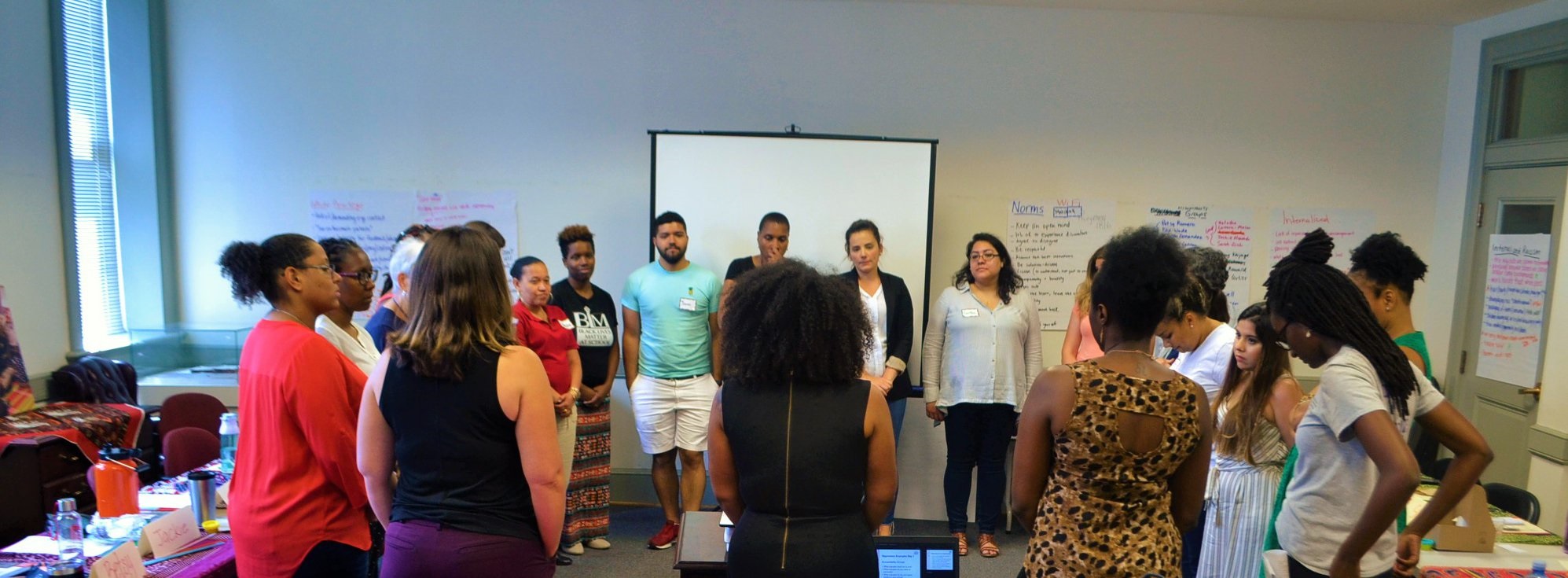WLC on the Schools First in Budgeting Act Bill 24-570
/Thank you for this opportunity to testify on the revised staff draft Bill 24-570, the Schools First in Budgeting Amendment Act (the “Schools First Bill”), which improves on its aim to create a more fair, transparent, and predictable school budgeting process for D.C. Public Schools (DCPS).
The Washington Lawyers’ Committee for Civil Rights and Urban Affairs (the Committee) works on many fronts to dismantle the effects of generations of systemic racial discrimination and poverty. These goals are frustrated by a school budget process that undermines school communities’ ability to fund the staff and programs students need, and we welcome the opportunity to create a more equitable school budget process in DC.
The District must invest in a robust public education system that addresses persistent inequalities that result from historic racial segregation in our schools. This includes allocating sufficient, targeted funding to meet the education needs of low-income students, students of color, and students with disabilities. A fair budget process establishes stability for schools, accounts for inflation and rising costs, provides transparency and sufficient time for school communities to engage, and ensures sufficient funding targeted to address long-standing racial, economic, and disability disparities.
The Schools First Bill is an important step to address long-term concerns about school budgets’
stability and sufficiency, and the Committee supports the Schools First Bill’s intent to provide
stable, transparent school budgets. However, the Bill needs additional edits to ensure it
achieves its goals and as explained below, the time is not ripe for changes to the school
budgeting process. The Council also should not take up this issue alone if it is going to truly
create equitable school budgets. Therefore, the Committee recommends that the Council
addresses the issues raised in this testimony before further action on the Schools First Bill.
The Revised Draft of the Schools First in Budgeting Amendment Act Takes Important Steps to
Creating an Equitable School Budget
For many years, individual DCPS schools have deep uncertainty until late in the budget approval
process as to their school budget for the next year. As the Chairman correctly recognized in
introducing the Schools First Bill, the proposed Fiscal Year 2020 budgets left 31 schools with less
funding than the prior year, even though for many of those schools, their enrollment hardly
changed at all. For Fiscal Year 2022, almost four dozen schools were confronted with cuts.
Year after year, the schools most affected are DCPS neighborhood schools with very high
percentages of students of color living in acute poverty. In 2020, eighteen of the twenty-two
schools hardest hit by budget cuts were in Ward 7 and 8.
Although the Mayor eventually restored funding in each instance (after much advocacy from
community members), the turmoil harmed school communities. Teachers and support staff are
often placed in a tenuous position of not knowing if their job will exist for the next year, and
they often choose jobs in other schools or districts, contributing to high rates of teacher
turnover. Families worry that their neighborhood schools will not have sufficient funding, and
move to other schools. These budget decisions have long lasting and cyclical effects:
disinvestment in schools means that the quality of education necessarily declines, fewer
families choose their neighborhood DCPS schools, and schools receive less money in the coming
years under the UPSFF.
The Schools First Bill is an important step to address long-standing concerns regarding the
stability of school budgets, and the Committee supports many of its provisions, including:
1. establishing stability for schools by building off of prior budgets while adjusting for
inflation and increasing teacher salaries, creating more fulsome funding and more
predictability;
2. allocating funds to the individual schools first before central administration and general
school support and requiring central administration to transfer additional funds to
schools if costs are transferred from central administration or general school support to
individual schools, ensuring that there is enough money to fund basic needs;
3. making school budget calculations a matter of public record, increasing transparency for
school communities;
4. requiring DCPS to make its budget calculations available to the public at least six weeks
before the DCPS submission date for the fiscal year established by the DC Council
allowing school communities to participate; and
5. basing personnel budgets on average salaries rather than actual salaries, benefitting in
particular schools in historically underinvested neighborhoods which tend to have
higher proportions of teachers with fewer years of service.
The Schools First Bill also requires DCPS to adjust the budget for inflation, and wisely uses the
highest of three measures to do so (1) the year-over-year change in the CPI-U for the
Washington-Arlington-Alexandria area averaged over the three previous calendar years; (2) the
projected increase for the forthcoming year in the foundation level of the UPSFF; or (3) the
collectively bargained salary increase, for the forthcoming year, for members of the teachers’
union. This will ensure school budgets are sufficient to meet the need.
However, the School First Bill does not – and needs to -- directly address an ambiguity in the
current stabilization law. It fails to eliminate the vague “substantial instructional or
programmatic change” exception in the current law, which can be used by DCPS to drastically
cut school budgets. Indeed, DCPS did exactly that when it discontinued its extended school year programs and severely cut school budgets at Title I schools across the District. DCPS
claimed at that time that ending its extended year pilot program at several high poverty schools
was “a change in program” exception to the current stabilization law rule, which allowed DCPS
to drastically cut, rather than stabilize, school budgets. 1 Eliminating the “substantial
instructional or programmatic change” exception was part of the draft Schools Full Budgeting
legislation by the Chairman in December 2021, 2 and it should be included in the Schools First
Bill moving forward.
Using Current Year’s Budget with Short-Lived Federal Funding Pandemic Supplements as a
Baseline May Have Unintended Consequences.
If the Schools First Bill is passed and implemented this year, school budgets going forward may
be based off of artificially high baseline budgets. This is because this Bill uses as its baseline
current school budgets, and through 2024, current school budgets include significant federal
ESSER funds. While we support increasing school budgets to fully fund the needs of the
District’s students, we share the concerns of several Ward Education Councils and the Coalition
for DC Public Schools and Communities members (C4DC) who testified at the September 16,
2022, hearing that the Mayor and the Council will not replace the one-time federal funding and
that DCPS will be forced to make drastic and inequitable cuts to meet the requirements of the
Schools First Bill. For example, DCPS may have incentives to close certain neighborhood schools
rather than fully fund them. While the Schools First Bill correctly protects individual schools
from budget cuts unless “the enrollment decline is great enough on the grade or subject level
to eliminate a classroom or warrant elimination of a classroom teacher,” if a school has several
grades that are close to that low-enrollment threshold, and DCPS must replace one-time ESSER
funds for that school out of its own budget, DCPS may be tempted to close that school (and
perhaps other schools like it). DCPS may also have an incentive to reduce funding for DCPS
programs that are important for students, such as school curriculum and socio-emotional
learning supports.
Interaction Between the Schools First Bill & New DCPS Student-Based Budget
The Committee also suggests that the Council pause the Schools First Bill while school
communities are still adjusting to the new DCPS student-based budget allocation process for FY
2023 (SY 2022-2023). Some schools already have identified significant problems with it. For
1 Edward Lazere, Reversing School Budget Cuts in Ward 7 and 8 Should be a Top Priority, DC Fiscal Policy Institute,
April 29, 2019: https://www.dcfpi.org/all/reversing-school-budget-cuts-in-wards-7-and-8-should-be-a-top-priority/
2 Mendelson Bills Seek to Stabilize DC School Budgets, The DC Line, December 12, 2022:
https://thedcline.org/2021/12/22/press-release-mendelson-bills-seek-to-stabilize-dc-school-budgets/. See D.C.
Code §38-2907.01(2).
example, Hardy Middle School parents testified at the Schools First Bill September 16 hearing
about the significant cuts to their music program, when enrollment did not change significantly.
Two librarians from DCPS schools in Wards 6 and 7 testified about their concerns regarding cuts
to their library resources. School communities need this school year to assess the full impact of
DCPS’s significant budgeting changes. If this Bill were to pass now, it would difficult to isolate
whether proposed school budget cuts are the result of DCPS’s student based budget
methodology or the Schools First Bill, and likewise difficult to target solutions.
Conclusion & Next Steps
Although we applaud the Council for taking further steps to address a persistent problem of
instability in school budgets, we encourage the Council to make the changes suggested in this
testimony and have additional opportunities for public input before passing the Schools First in
Budgeting Amendment Act.
In addition, we urge the Council to use this opportunity to focus on long-standing issues related
to the school budget. The Schools First Bill alone will not ensure equitable funding for all of our
public schools. In particular, the Council should:
1. Ensure At-Risk funds allocated to schools as part of the Uniform Per Pupil Funding
Formula (USPFF) are used to directly benefit students in all of our public schools who fall
into one or more At Risk categories, and that At-Risk funds supplement and do not
supplant general UPSFF funding. The DC Auditor and school budget advocates identify
this as an annual recurring problem that unfairly shortchanges the students who need
full, equitable funding the most. 3
2. Revise the Uniform Per Student Funding Formula (UPSFF) to equitably and more fully
fund DCPS fairly for the thousands of students who start mid-year at DCPS neighborhood schools. Despite changes to charter funding on a quarterly basis and
allowing DCPS to estimate projected increases of mid-year students, the budget still
does not fully fund DCPS to deal with the arrival of thousands of students to DCPS
schools throughout the year, particularly in schools serving low-income communities.
3. Fund the full Maintenance & Operations costs of DCPS, which have been underfunded
for many years. DCPS schools, particularly the middle and high schools, tend to have
larger school buildings and grounds than charter schools, as well as spaces with varied
uses such as theaters, football and baseball fields, tracks and pools that also benefit
neighborhood community members. The DCPS per square foot maintenance and
operations funding therefore is much lower per square foot than what charters receive
in their facilities allotment under the UPSFF, and the charter facility allowance actually
overfunds most charters for their space. 4
4. Pause the opening of new charter schools, the expansion of existing charter schools and
the opening of new DCPS citywide magnet schools, at least until a Master Facilities Plan
is approved. Too many of the District’s education dollars are funding more school
buildings and administrative costs and not enough of our education dollars are
addressing students’ needs, particularly Black and Brown students attending school in
historically disinvested areas. 5
4 See Matthew Frumin, Written Testimony Regarding Bill 24-570, Schools First in Budgeting Amendment Act,
September 16, 2022: https://www.dropbox.com/sh/a9c91dqy6nmas9t/AADFoPdBlYq8Bn7fYcUwhvO-
a/9.16.22%20Schools%20First%20in%20Budgeting%2C%20Bill%2024-
570?dl=0&preview=Frumin+Testimony.pdf&subfolder_nav_tracking=1.
5 Office of the DC Auditor, New Research Finds DC School Choice Results in Declining Resources for High Poverty
Schools, Press Release Jan. 9, 2020, http://zd4l62ki6k620lqb52h9ldm1.wpengine.netdna-cdn.com/wp-
content/uploads/2020/01/DC.My_.School.Data_.Enrollment.Study_.Press_.Release.1.9.20.pdf; The Center for
Research and Reform in Education, Enrollment Projections in DC Public Schools: Controls Needed to Ensure Funding
Equity, A Report for the Office of the DC Auditor, Jan. 9, 2020, http://dcauditor.org/report/enrollment-
projections-in-d-c-public-schools-controls-needed-to-ensure-funding-equity/. See also Qubilah Huddleston,
Testimony on the Schools First in Budgeting Amendment Act of 2021, DC Fiscal Policy Institute, September 16,
2022: https://www.dcfpi.org/all/testimony-on-the-schools-first-in-budgeting-amendment-act-of-2021/.
3 According to DC Code §38-2907.01, DCPS must not supplant a school’s UPSFF base funding, federal, or other
funding with At Risk funds. In addition, DCPS must directly allocate at least 90 percent of At Risk funds to schools
and must proportionately allocate funds to schools based on their projected at-risk enrollment numbers; See also
D.C. Code § 38–2901(2A); Office of the DC Auditor 2019 Report, DC Schools Shortchange At Risk Students, June 26,
2019, at pgs. 3-4: https://zd4l62ki6k620lqb52h9ldm1-wpengine.netdna-ssl.com/wp-content/uploads/2019/06/At-
Risk.Funding.6.26.19-1.pdf; See also Mary Levy, March 9, 2021 Oversight Hearing for Education Agencies, Written Testimony before the Committee of the Whole of the District of Columbia Council, at pg. 3, #1: “At-risk funds too often supplant rather than supplement other funds. . . . in the current year about 40% of at-risk funding in the school budgets supplanted base funds, in contravention of governing law. The level at which supplanting occurs varies enormously from school to school, and those whose funds are used this way have less, sometimes almost no extra resources dedicated to at-risk students.” https://w6pspo.org/2021/03/09/mary-levy-testimony-oversight- hearing-for-education-agencies-march-9-2021/.
